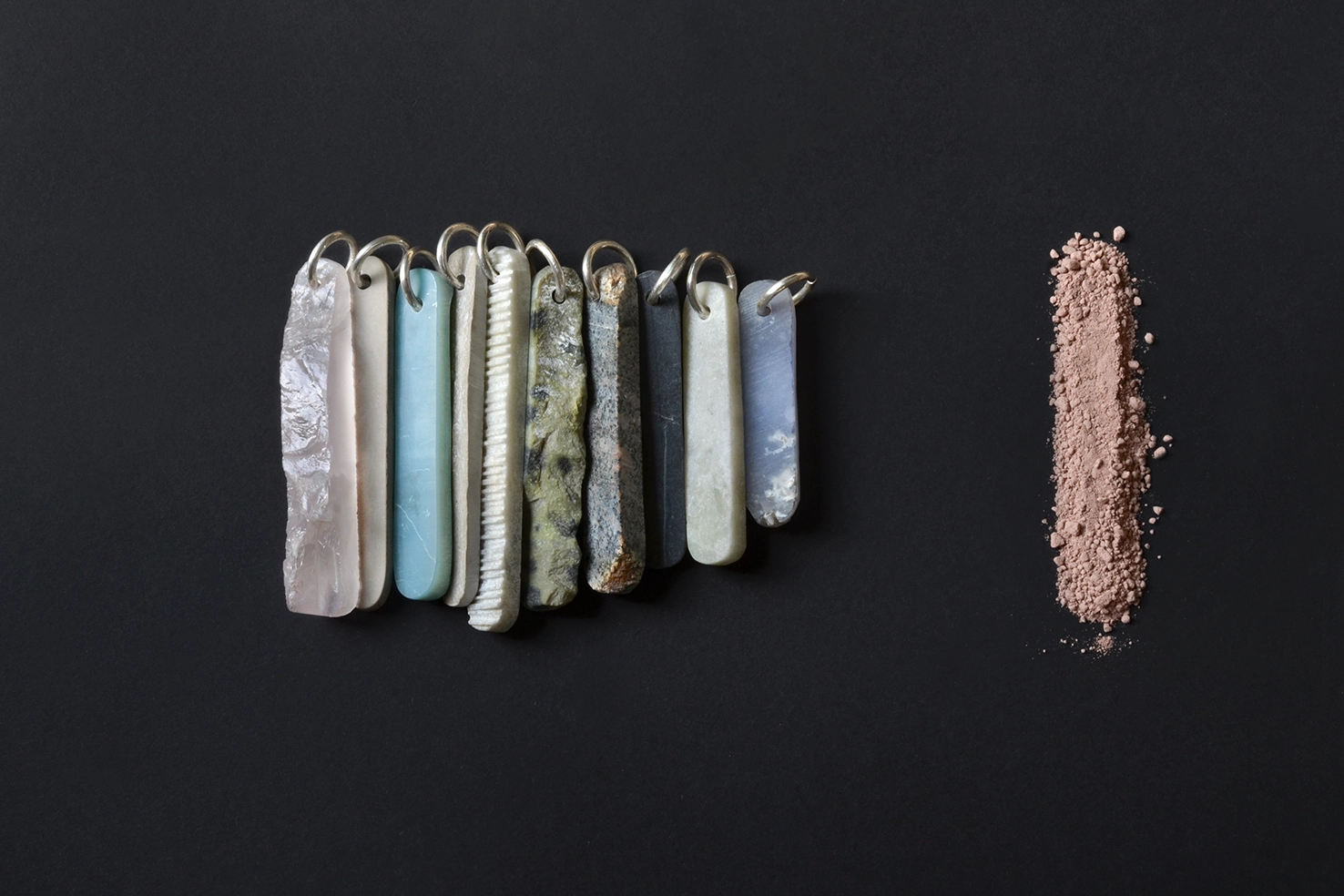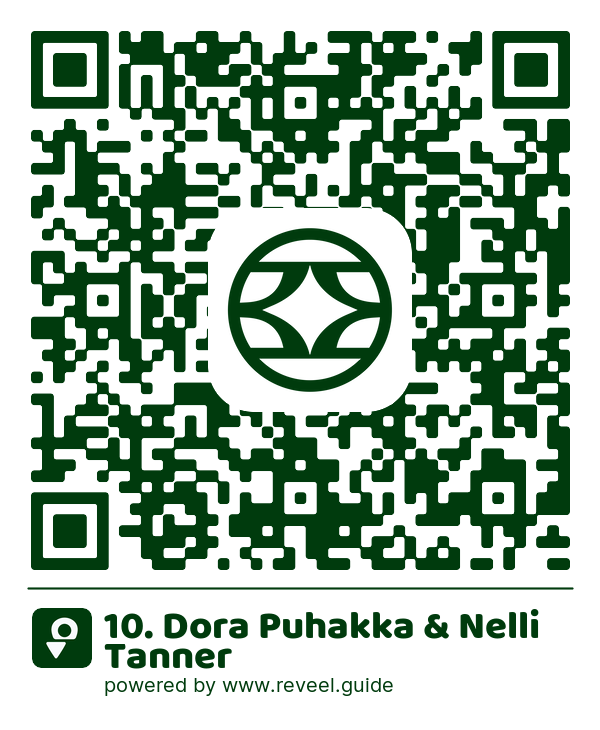
10. Dora Puhakka & Nelli Tanner


10. Dora Puhakka & Nelli Tanner
Family of
Rose quartz, sandstone, synthetic stone, quartzite, serpentine, granite, slate, agate, silver
The family has accompanied the storyteller between Namibia and Finland. The stone pieces are rough, smooth, shiny, broken, found, and almost perfect. Their surfaces and textures tell stories of different family situations as well as presence and absence.
Together
Soapstone, jasper
Namibian jasper and Finnish soapstone are everyday stones. In the piece, you can see the stone separating from the rock, its native soil, as well as the marks of its working. The unpredictability of life is visible in the necklace, which is missing pieces and can only be looked at or touched.
Dora Puhakka
I am from northern Namibia. I was born in a village called Oniipa. I came to Finland at the age of 1.5 with my mother and older brother because my father was studying in Finland. Our whole family returned to Namibia when I was 6.5 years old, and it was nice to go back. But it wasn’t easy, as there was a lot to learn. I returned to Finland as an adult to study. I met my husband here, we dated, and got married in Namibia.
Equality, to me, means that in a way everyone is of equal value, for example as human beings, regardless of their age, gender, education level, or social position.
I have experienced being equal with my siblings in my childhood family, with my classmates in school, and sometimes in work communities, although this varies from workplace to workplace.
As a child, for example, I got to take turns doing household chores and sharing responsibilities with my older brother, and I found that fair. It feels good when you feel like you are being treated fairly. At school, I got to participate in games, discussions, and competitions with my classmates. Sometimes I didn’t get a chance, and sometimes I didn’t win, and that can be disappointing, but then it’s someone else’s turn to get a chance or win.
I feel that if you haven’t had an equal opportunity to participate with others, you might not know how to see it as necessary. In that case, you probably have to learn to feel entitled to equal treatment and to expect it. If you’ve experienced equality, you might get disappointed more easily if you feel it’s missing.
Finland has many good things, but there are also things that could be improved. For example, structural racism does not allow for the equal treatment of different people or for them to experience the societal virtues equally. Eliminating or reducing racism would make Finland a better place for everyone living here equally. Adding compassion and more smiles would also make Finland a better place in many ways. In the summer, it’s bright, and people smile more, so longer summers and proper, crisp winters might help.
I’ve had a few acquaintances in Finland since childhood. I spent time with them, and they helped me find my place. One time, a friend took me to see a movie in the winter. I had been very sad before that, and it really cheered me up, especially when we chatted a little after the movie.
I also met new people and learned more and more about living in Finland and about myself. Discovering new things is very refreshing to me. The best thing for me has been participating in a peer group. I gained new information, learned new skills, and met important people. After the group ended, I also trained as a peer group leader and have supported others through group activities.
My home country’s culture is very different from Finnish culture. Despite these vast differences, people’s personalities and what they want in life can be quite similar. Societal expectations are different. My culture’s diet typically includes millet porridge, which can be thickened with cornmeal. Neither of these ingredients is easily available in Finland, so I have made porridge with semolina, and it tastes quite good. Mother’s Day is celebrated on the same day in both countries, so it’s simple to observe in my family. However, Father’s Day is celebrated on June 16th in Namibia and November 10th in Finland. In my family, we celebrate Father’s Day twice a year, and of course, I congratulate my father on both days, even though he lives in Namibia.
I studied economics and found a job in that field. However, I didn’t enjoy working in economics, even though I feel that it can be a part of my duties. It has been important to me to work in roles where I can engage with people, and this has been supported by my degree, Finnish language skills, peer leader training, strong networks, and mentoring.
I have many identities. I am a daughter, stepdaughter, little sister, big sister, cousin, aunt, wife, daughter-in-law, sister-in-law, mother, and friend. Professionally, I am an expert, a lifelong learner, and a colleague/partner. I am a guide, speaker, and facilitator. Sometimes I feel Finnish, but I am not a Finnish citizen. I am Namibian, a resident of Helsinki, and a resident of Kannelmäki.
